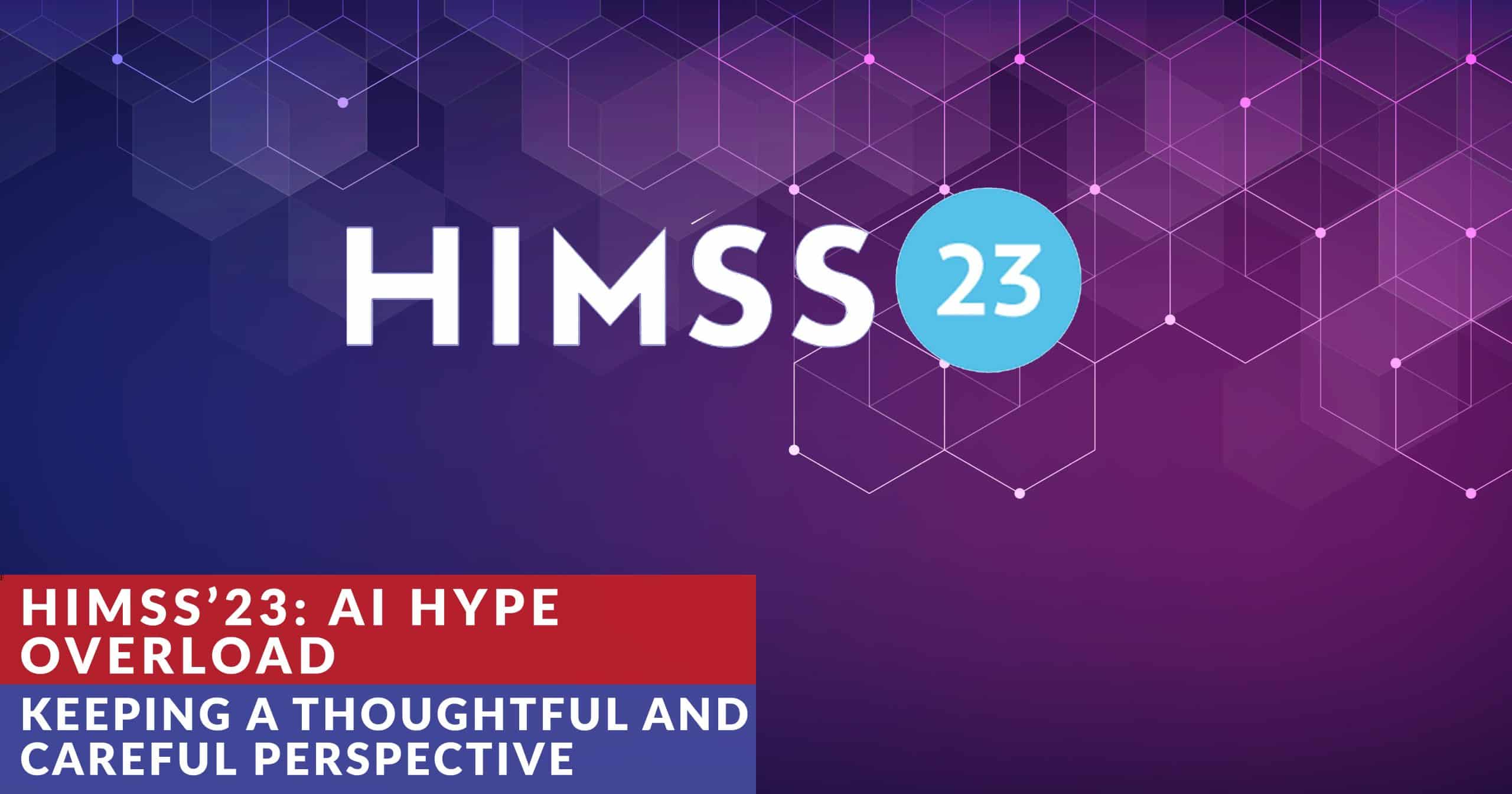
Despite the rounds of applause from virtually all sectors of the healthcare establishment (AHA, HIMSS, AllScripts’ customers, etc.) the HITECH Act, as currently drafted in the Stimulus Bill (both House and Senate versions of HITECH are quite similar), will ossify healthcare IT (HIT) completely stagnating innovation in HIT. It is also questionable as to how much the HITECH Act will actually contribute to the ulitmate objective; simply delivering better, more cost effective care.
That is not to say that the use of HIT can not improve outcomes, that it cannot improve health, far from it. What we argue is that this legislation is extremely problematic for it has created an incentive structure that is not conducive to innovation.
Where did the legislature make a wrong turn?
As we mentioned in our previous post on the passage of HR 1, HITECH legislation is providing incentives for physicians to be reimbursed for the adoption of “certified EHRs”. Certification, by its very nature, is a time consuming (some might say time wasting) exercise. Certification to standards is even worse (ever been a part of a Standards making body – they move at a glacial pace). Stating that physicians will only be reimbursed for adopting certified EMRs basically puts the death nail into any innovative ideas that break from the cumbersome certification process or don’t adhere to some archaic standard like CCD.
Let us not also forget that the very word “certified” strikes fear into the heart of any Venture Capitalist (VC). Honestly, who in their right mind would ever invest in a start-up that need to go through some arduous certification process to enter a market, a certification process established by players in a given market? No, certification is good at creating moats and castle walls and not greenfields that foster opportunities for innovation.
A second key point and maybe even more important one is that if the purpose of HITECH is to deliver better, more effective healthcare than the incentives are completely misaligned. Just because we reimburse a physician for purchasing a certified EHR, doesn’t automatically equate to their using the solution to deliver effective care. We are providing incentives for actions, not behaviors.
And what’s the alternative?
To truly foster an open market, open innovation and subsequently open adoption of HIT, it is necessary to create a legislative framework of incentives that focus on what behaviors we wish to see adopted by physicians and not which technologies we wish to see them use.
For example, if we were to develop an incentive program that simply asks physicians to do a quick review of a patient’s current medication list prior to writing a prescription for a new medication and include checking for possible interactions, (prof that they checked might be easily monitored through the major eRx clearing house SureScripts) we would see a likely decrease in adverse drug events (ADE). This could easily be tied to the current eRx push by CMS.
In this example, we are not incenting the physician to use a certain technology, but adopt a certain behavior (check before prescribing). Imagine the impact if we saw but a 15% drop in ADEs as a result in such change in behavior. Now that’s savings, that’s better healthcare and it is a greenfield of opportunity. Similar behavioral incentives can be created in numerous other areas.
It is clear that the legislature took the easy path as it is far simpler (and politically more expedient) to create incentives for the adoption of a technology, certified EHRs, rather than the more strenuous task of creating incentives to encourage behavioral change. Unfortunately, if the current legislation ends up with Obama’s signature, we will be pouring wet concrete into a market with woefully low HIT adoption. When that concrete sets, it will be nearly impossible to chip-out and we will be left with an edifice of good intentions gone horribly wrong.




Ossification by excessive alcohol consumption is more likely.
Sorry, not subscribing to a reimbursement plan based upon the current architecture for healthcare delivery.
I would subscribe to a model involving taxpayer equity, patient centered care, effective and efficient care, safe care and timely care. Notice reimbursement was not part of the IOM plan.
If the tax payer is expected to take more financial risk then nationalize the healthcare system with a big bang technology product and open the education doors to increase the physician work force to lower the cost of care.
A plan like that might actually attract people who want to help the sick rather than attracting people who want to become millionaires…
Current proposals to reimburse for purchasing a “certified” EHR meaning CCHIT certified are misguiding. Lets start with the fact that CCHIT was spawned by HIMSS- a flaming lobbyist organization and consider the fact that the chairman of CCHIT is the CMO of HIMSS. Of interest here while CCHIT used to occupy space in the HIMSS location at 230 E. Ohio Street, Chicago and then moved to Whacker Drive– the State of Illinois lists their registration as “Dissolved”. A little investigation reveals, INVOLUNTARY DISSOLUTION 04 11 08. Verify this at
http://www.ilsos.gov/corporatellc/CorporateLlcController .
CERTIFICATION COMMISSION FOR HEALTHCARE INFORMATION TECHNOLOGY File Number 65254336
So here we have lobbyists who specialize in artificial transactions claiming to be non-profit 501 (c) 6’s who spawn another non-profit, CCHIT a 501 (c)3 who is now defunct according to the State of Illinois but passing themselves off as the voice of change to the new administration (the only change these folks will bring is the change you have in your pocket going into theirs). CCHIT is the effector arm of HIMSS, a lobbyist, the certification is really just a pay for play scheme and thus reimbursement under HIMSS $25 Billionplan is just another form of pay for play Ponzi scheme.
A closing thought: about 80% of the physicians out there do not support adoption. Gee, I wonder why with all the carnival thieves telling them to implement while trying to legislate mandates for half baked ideas that are just more trouble on top of what is already a whopping mess.
Cal
Dear John: I agree with your outlook and sentiments, but not necessarily with your prediction about the results of HITECH. The Bill leaves very significant discretion in the hands of the Sec. of HHS and the Dir. of ONC as to how the certification process will play out, who will do the certifying, and what is actually certifiable. Thus, it would seem to me that it is immeasurably important who gets these posts, and whether they are shills to the legay IT industry or willing to stand up to the status quo seekers, and allow for innovation and promote disruption. In any case, I believe the levers here are not determinative of the change, only its pace. I am seeing significant interest in alternative technologies outside the current certification pathway, simply due to the cost reduction pressures being felt by physicians, hospitals, and groups of providers in a recession and in anticipation of reductions in allowable charges. The Obama administration will have to make a choice to either buoy up the high cost of health IT, or help providers lower their costs and use IT to further reduce costs to payer and patients. HITECH seems to me to be a framework that might do either.
Kind regards, DCK
A national health system that included funding for educating primary care physicians that truly increases the work force in that domain , a unified health information network with e-prescribing and standards of care that cross states lines with cost-caps across the board would go a long way toward an upgrade from what we have now.
Eliminating paper based records may not be appropriate for many in the profession.
Here is why.
1. Retirement may be just around the corner- there will be no ROI.
2. My practice isn’t that big
3. The products out there are half baked
4. If you force me to implement something I do not want I will make sure it doesn’t work.
5. I like paper and hold stock in paper companies.
6. If you make me buy a Chevy Vega who will maintain it- you know the engine will blow up six months after I get it?
7. What do I do when the Vega is in the repair shop?
8. If its free it costs too much
9. Can someone come out to my office and show me how to turn the computer on?
10. Can someone tell me how to turn the caps lock off
11. I had misspelled words and now I do not know how to get the white-out off the monitor
12. I need a bigger office to hold all of the equipment , can I get rent controls?
13. I called the help desk and they told me the HHS Secretary would not be available to answer my call untill he gets back from his speaking engagement at HIMSS annual conference.
14. Help desk support is only for people who have registered, I can create a new account but the back log on registration is 2 years.
15. We don’t have an ISP where I live
16. The server at my restaurant wants a 20% gratuity
17. Local Pharmacies only accept handwritten or faxed prescriptions
18. The repair shop called and said that a software warranty extension will only cost me $50,000 for the next 3 years but the good news is after that they no longer support the product. I will have to buy a new license and migration fees would only be an additional 50k. At that time I could also opt in on buying the new triple DR-DAMM memory boards that will make my practice run at schlepp speed.
19. Oh gee, I forgot my password for this and for that and for every other GD login screen you can imagine.
20. Oh Gee, I love computers, but its probably not a good thing , me spending so much time with them and not being with my patients.
John
I really like the word “ossification”. I agree with you on several points. Certification is a lengthy process which creates advantages for incumbent EHR companies, many of which have products that are built on old technologies and create silos of data.
An open framework for development and one that is easy and developer friendly and allows simple apps to be built is more the need to allow disruptive technologies to emerge. We at TrialX.org were able to integrate with both G Health and Microsoft health vault with relative ease because these systems provide easy to use APIs unlike the closed EHR systems (integrating with them is known to be a nightmare)
Also many HIT standards are too heavy and are much removed from the developer community, which is why there has never been a flock of dvelopers like those for iPhones or other open APIs.
We are working on enhancing some of the Web 2.0 like APIs we are creating internally for more generalized healthcare app development
Calvin,
Your second post had me LOL, yet tucked within those 20 points are some very valid and very real issues that in our rush to get EMR into the hands of physicians, we seem to be completely skipping over. And that is part of the purpose of the post – trying to get the discussions away from just HIT and look more broadly, how do want to improve outcomes and deliver better care. No mistake, we at Chilmark are VERY STRONG proponents of HIT, our issue is with how we actually deploy and use HIT creating an environment that will allow innovation to bloom, not become frozen in the tundra of lengthy certification processes that only benefit incumbents.
David,
We are more on the pessimistic side than you. Sure, the legislation does not have language that explicitly states an EHR must be certified by CCHIT, or some other specified org, but the legislation does state that NIST will get a boatload of $$$ from HHS to define standards/certification etc. Virtually anytime the word certification raises its head, it means lengthy delays, delays which small innovative companies and their investors can ill-afford. Our fear is that mandating “certified EHRs” regardless of what that certification process means will lead to innovators leaving the healthcare sector for markets that are less restrictive.
And David, believe Kamal is just the type of person and TrialX is just the type of company we need more of in healthcare. Kamal’s comments echo ours and we have rec’d numerous calls and emails on the subject as well from other small innovative companies.
Our only hope at this point, and here is where we agree, is that the future leaders at HHS create a structure that creates fertile ground for innovation. The legislation in HITECH Act gives them that flexibility, let’s pray that they act upon it.
there is no point in debating, arguing about and disagreeing/ agreeing abt something you and i dont know abt yet. there is nothing concrete abt hitech act yet – it is very fliud still and it will take forever to set. so we can chip and change anytime. there is no HIT expert in the USA who knows what the solution is! all HIT experts are semi brains with localized thinking – how can we have a national solution? abt the doctors who dont know how to use or dont want to use computers, shud be paid less by medicaid and medicare etc coz they are saving LOTS of money in rent, equipment, computers, software — so how abt cutting their fee by 50% from next year? why shud the low quality doctor get paid the same? coming back to the semi brain HIT experts in the USA, name one who has a solution – if u can — or is it u? of course we dont even have a health secy yet! we better get a good one – who has a solution but i doubt it. it is shameful for the USA not to have any solution for the so called healthcare problem — most of them dont even know what the problem is – let alone what the solution might be. my guess is it will take 4 years just to know what the problem is and agree on it first. then may be under Obama-II we can have the solution figured out and then by the time solution is done, the problem will be gone and we dont need the solution anyway. like they say its hill, hillary and hillarious. she had the solution but she aint the pres — well so it goes. pooh pooh the dhhs and the onchit for they have let the country down badly — there was no progress during the past eight years anyway u look at.
People like me, are here to help people like you!
If you have to go to an EHR, you may as well get incentives for it. Yes, there are Docs on the verge of retirement, and yes, some cannot turn on the computer. To a patient, no computer in your office may portray a lack of modern medical technology. If you’re going to stay in your practice, you need to roll with the times.
Sheryl,
Thanks for your comment. I would even go so far as to say that beyond rolling with the times, physicians need to move into the 21st century. Granted, it has been difficult to articulate to physicians what’s in it for them as we all hear horror stories of bit productivity hits, cumbersome software, little attention paid to training and workflow, the list goes on. But I have also heard plenty of stories from savvy, small practice physicians that aggressively adopted HIT, have embedded it into everything their practice does and have made big financial gains as a result through better customer service, referrals, automating processes, etc. The dinosaurs of healthcare, those that drag their feet, unwillingly adopt, etc., will become extinct and frankly, healthcare may well be better off as a result.
Has anyone determined what incentives if any, are provided for non-medicare physcians?
There are incentives in place for physicians that care for Medicaid patients. Beyond that, ie if a physician serves neither, there does not appear to be any direct incentives stated in the legislation. The director of ONC, however, does have roughly $2B in discretionary funding. While some is already earmarked, eg $300M for HIE/RHIOs, some for NIST, etc. there is remains a substantial amt of $$$ in ONC coffers. Remains to be seen how they will be spent, but would not count on it going to direct physician reimbursement for HIT adoption.
My question is this, say I implement a qualified EMR system into my practice through my billing company at a cheaper rate then most vendors. Is this incentive package designed solely to offset the cost of implementing the EMR system or is it designed to reward me for going digital? Simply put, is the goverment offering me a rebate or a true monetary incentive?
Chris,
My interpretation of the legislation is that you and other physicians will be reimbursed for demonstrating “meaningful use of certified EHR.” Payment is not directly tied to what you paid for the software under Medicare reimbursement (there are some ceilings based on cost of SW for Medicaid), but in either case, its all about meaningful use. Validate that you are meaningfully using the EMR and you should be all set. It is a true monetary incentive.